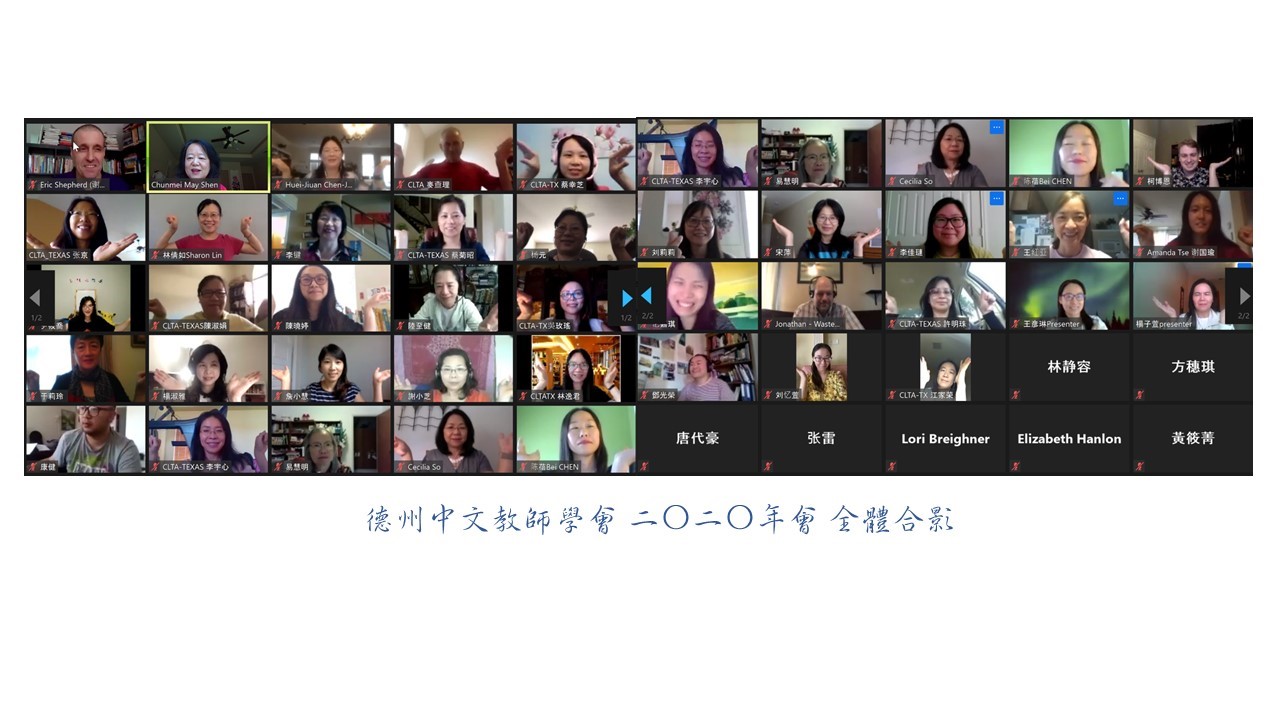Taiwan’s Chinese Language Education Promoted at CLTA-Texas 2020 Conference

The Chinese Language Teacher Association of Texas held its 2020 annual conference and post-conference workshop in virtual mode on the first two days of August, with support from the Taipei Economic and Cultural Office (TECO) in Houston, and the Chinese Language Teacher Association USA. Nearly seventy people took part in the conference: Chinese language teachers and scholars from Texas, from the east coast and west coast of the US, and as far away as northern Europe all helped to make it a great success.
The theme of this year’s conference was Chinese Language Classroom Skills for Global Competency. Dr. Eric Shepherd from the University of South Florida was the keynote speaker, and several scholars from universities in Texas presented papers on a variety of Chinese language learning topics. Drawing on his twenty years of research and teaching, and his personal experience as a non-native Mandarin speaker, Dr. Shepherd led the participants through an intense day and a half of practical professional training. The focus was on how to help students become self-motivated, independent learners able to seize learning opportunities. He advocates using culture-rich language contexts and creating immersive environments for students that combine Chinese language and culture.
Ms. Andrea Yang, Director of the Education Division of TECO in Houston, gave an outline of Taiwan’s Chinese Language Education, programs such as Learn Chinese in Taiwan, and Spread Chinese to the World, and related resources. Many teachers have to teach online right now because of the COVID-19 pandemic and they were very interested in the digital learning materials and courses available free of charge on Coursera, the world’s largest open online learning platform.
After the two-day conference, the participants felt freshly confident and excited about the new school year.
The Education Division and CLTA-Texas both look forward to working on other activities to encourage networking, and raise the profile of Chinese language instruction in mainstream U.S. education and increase its accessibility.
